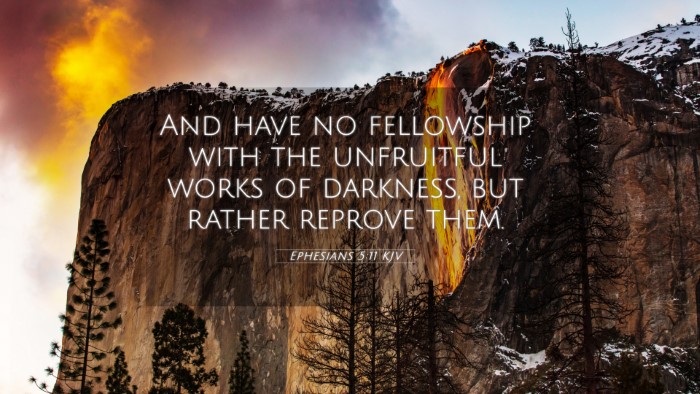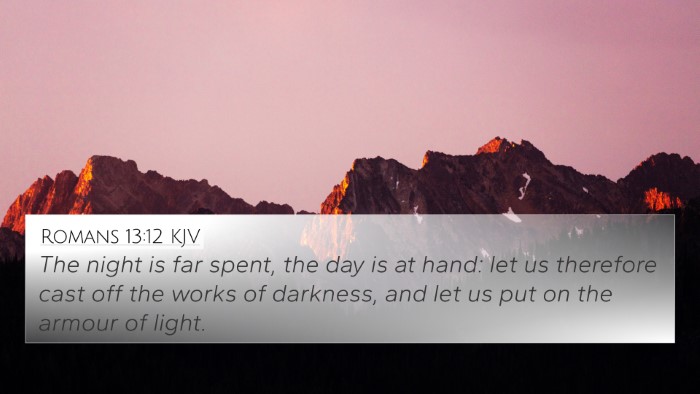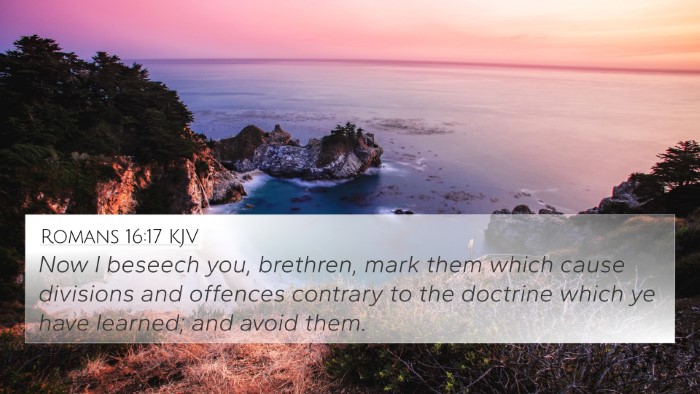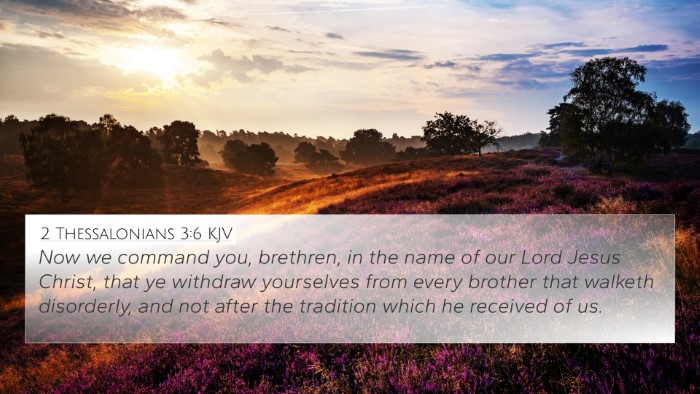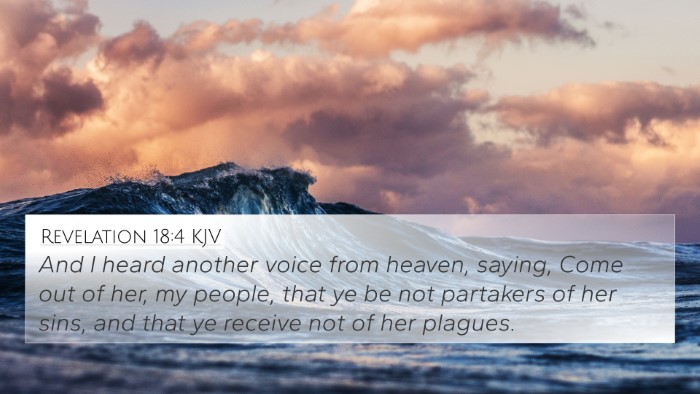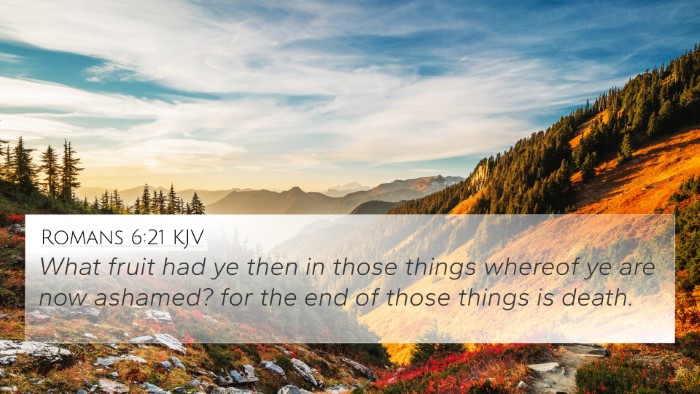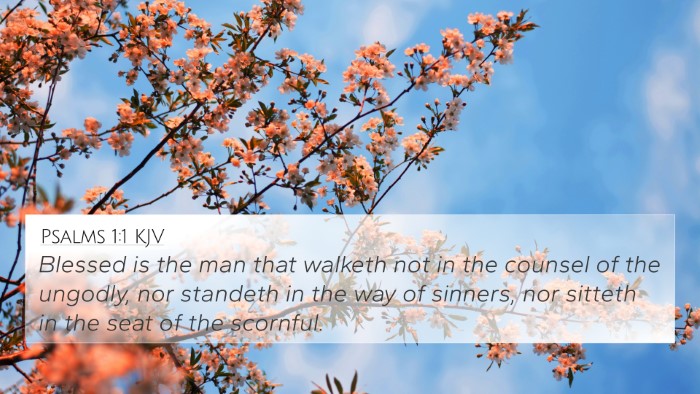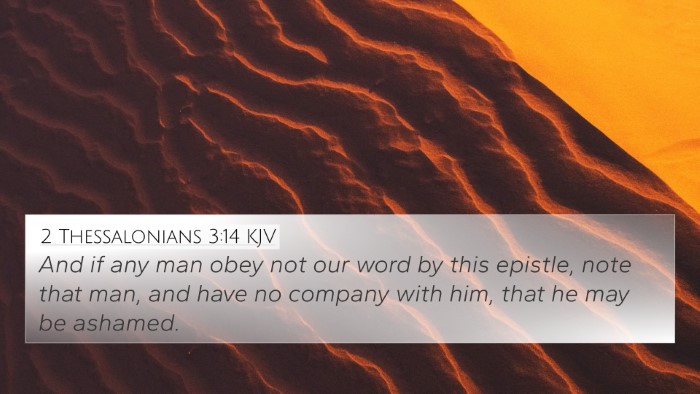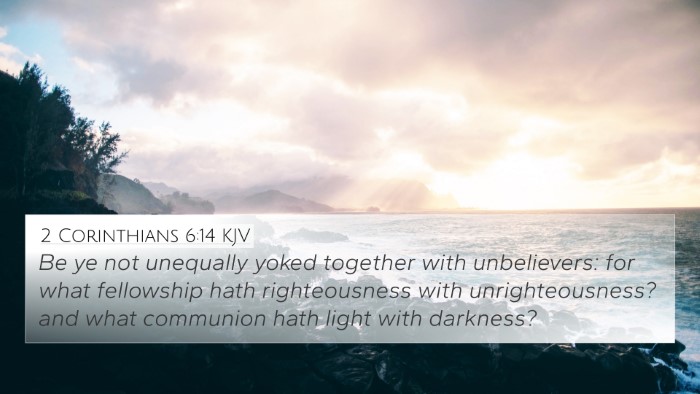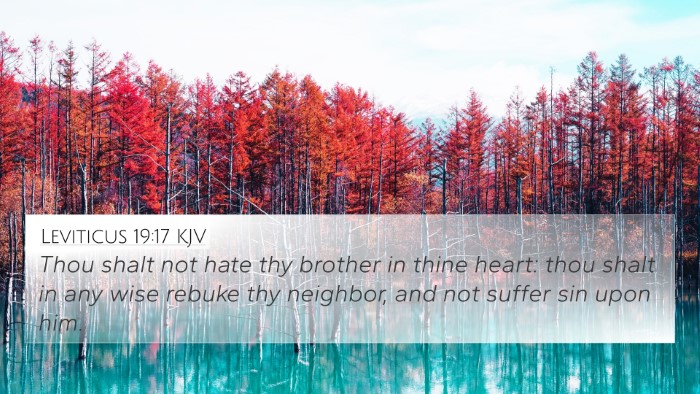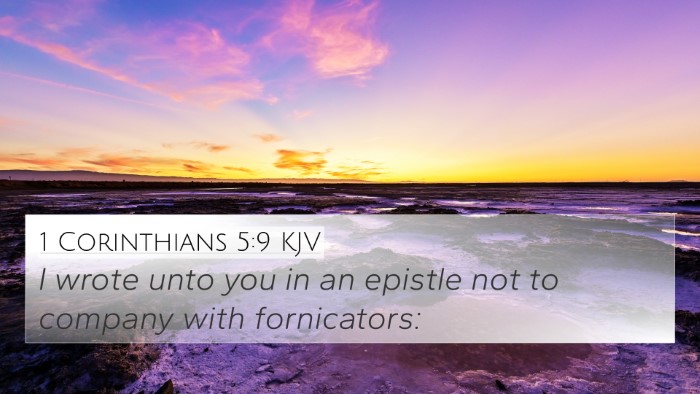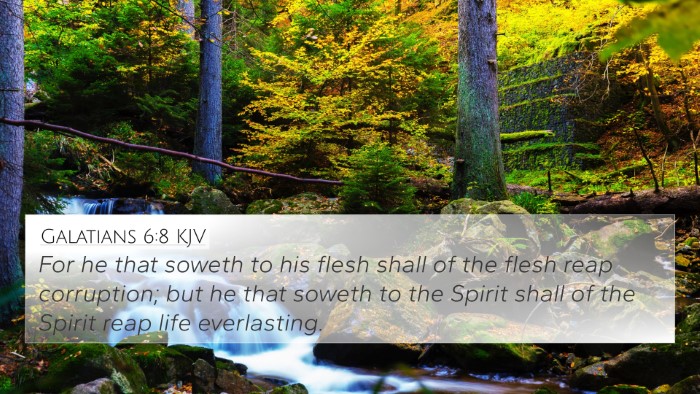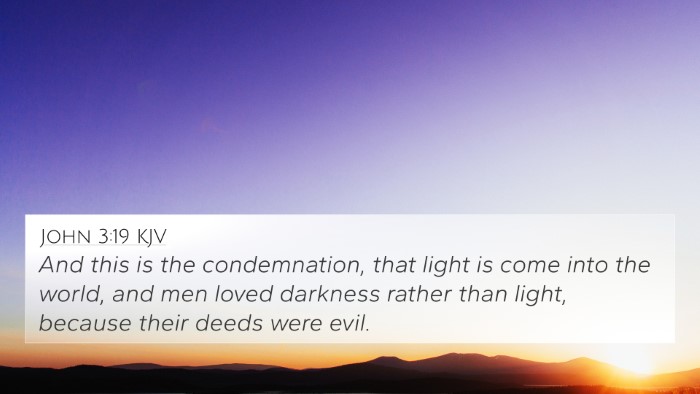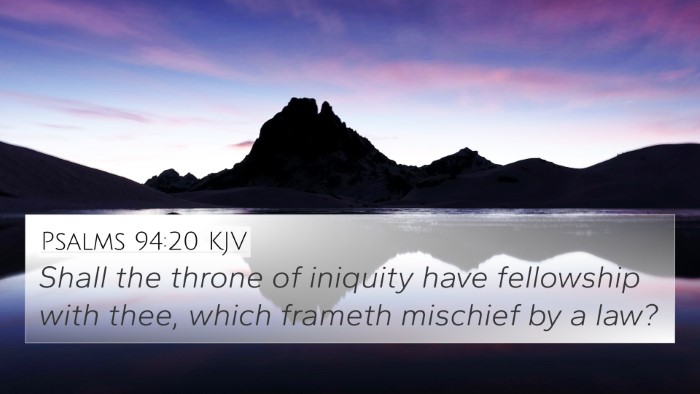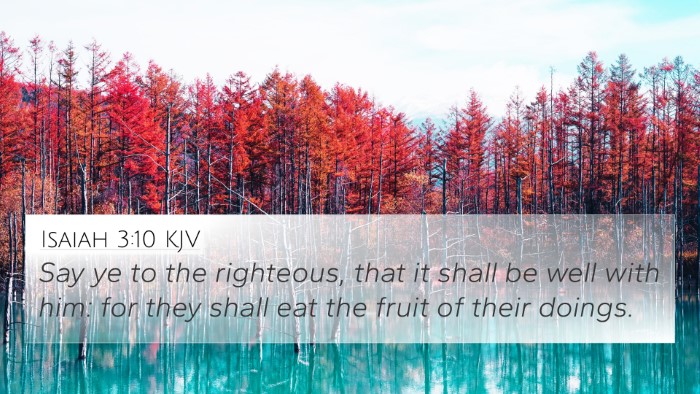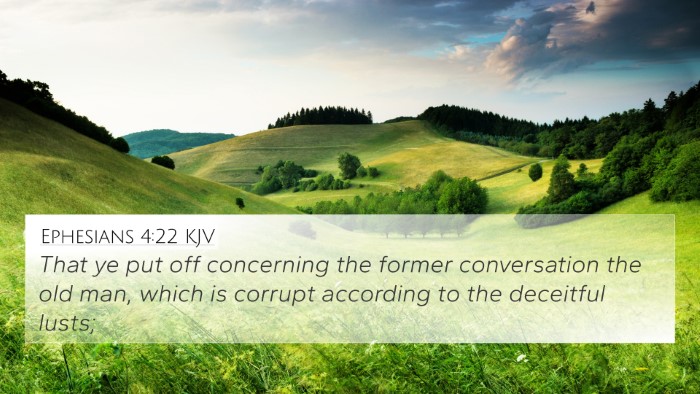Ephesians 5:11 - Insights and Interpretations
The verse Ephesians 5:11 states: "And have no fellowship with the unfruitful works of darkness, but rather reprove them."
This admonition highlights the Apostle Paul's call for believers to distance themselves from immoral practices and instead, actively engage in exposing those deeds. The verse serves as a caution against complacency in the face of sin, urging a proactive stance in promoting righteousness.
Key Themes and Biblical Context
- Separation from Sin: The call to avoid unfruitful works speaks to the importance of living in holiness and separating oneself from those who indulge in sinful behavior.
- Active Reproof: The emphasis on reproving darkness implies that Christians are not only to abstain from sin but also to confront it with biblical truth.
- Illumination: This verse fits within the broader context of light versus darkness, a recurring theme in Ephesians, where believers are called to walk in the light.
Cross References
The following verses provide relevant connections and deepen our understanding of Ephesians 5:11:
- 2 Corinthians 6:14: "Do not be unequally yoked together with unbelievers." This verse addresses the need for separation from worldly alliances that lead to corruption.
- Romans 13:12: "The night is far spent, the day is at hand: let us therefore cast off the works of darkness, and let us put on the armor of light." This emphasizes the transition from darkness to light.
- 1 Thessalonians 5:5: "Ye are all the children of light, and the children of the day: we are not of the night, nor of darkness." Reinforces the identity of believers as beings of light.
- John 3:19-21: "And this is the condemnation, that light is come into the world, and men loved darkness rather than light." Highlights the rejection of light by those in darkness.
- 1 John 1:5: "This then is the message which we have heard of him, and declare unto you, that God is light, and in him is no darkness at all." Establishes God as the source of light and purity.
- Philippians 2:15: "That ye may be blameless and harmless, the sons of God, without rebuke, in the midst of a crooked and perverse nation." Encourages conduct that stands out against the backdrop of sin.
- Galatians 5:19-21: Details the works of the flesh versus the fruit of the Spirit, illustrating the contrast between unfruitful works and a fruitful life in Christ.
Theological Interpretation
According to Matthew Henry, this verse emphasizes the duty of believers to neither participate in nor remain passive regarding the sinful behaviors surrounding them. In the context of Ephesians, Paul's exhortation to the church illustrates a broader theological principle welcoming accountability and action in the Christian life.
Albert Barnes notes that the apostle Paul insists on not just avoiding immoral activities but also confronting them. This proactive reproof is essential in the Christian witness, as it demonstrates a commitment to God's truth and righteousness.
Adam Clarke expands on the idea of reproving darkness, suggesting that the lack of accusation or condemnation can sometimes perpetuate sin, highlighting the necessity of speaking out against wrongdoing to maintain spiritual integrity and encourage others to do the same.
Thematic Bible Verse Connections
Ephesians 5:11 engages in a thematic dialogue not only within the epistle itself but across various biblical texts. The verse correlates with teachings that advocate for the purification of one's life from sin and encourage believers to live righteously. Through cross-referencing, we can derive deeper meanings of life's illumination in Christ while confronting the shadows of sin.
- Light and Darkness: Ephesians 5 as a whole (particularly verses 8-10) focuses on the dichotomy between light and darkness.
- Accountability in Relationships: Various Pauline letters call for mutual accountability among believers, emphasizing community support in moral conduct.
- Moral Courage: This verse represents a call to moral courage, urging believers to stand against immorality in society.
Practical Application for Today’s Believer
In light of Ephesians 5:11, contemporary Christians are encouraged to engage meaningfully with their culture. The call to disassociate from unfruitful works extends into how believers interact with media, friendships, and societal norms that may promote darkness. By assuming the role of reprovers, believers not only protect their walk with Christ but also provide a testimony of light in a world that often embraces moral ambiguity.
Conclusion
Ephesians 5:11 not only represents a guideline for personal conduct but threads together a larger biblical narrative emphasizing light's victory over darkness. Through cross-referencing with other scriptures, Christians can fully appreciate the implications of this verse and the call to live boldly and righteously in a challenging world. The connections made through various biblical verses reinforce this theme of light, urging believers towards holiness and proactive engagement in their spiritual communities.

